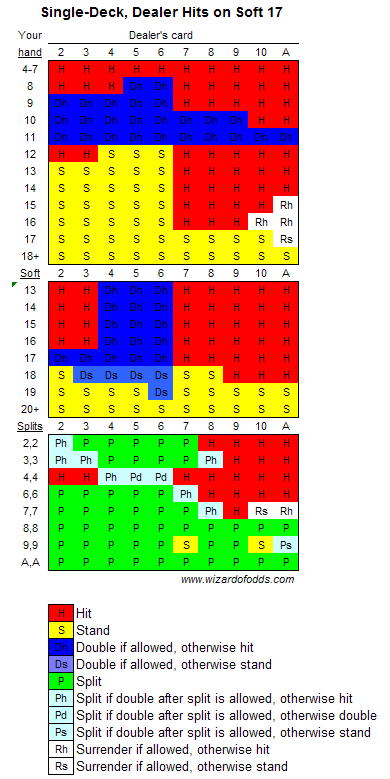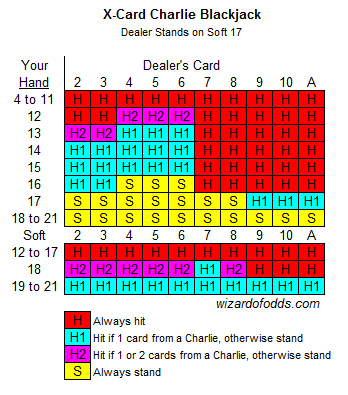Does A Blackjack Dealer Have To Hit On 16
When playing blackjack at a physical or land-based casino, the most frequent decision you’ll have to make is whether to hit or stand. While you can gain a feel for this over time simply through experience, you can expedite the process by studying up on the best moves to make in any given situation. If you’re ready to win more cash during blackjack games, read our handy guide to learn when to hit and when to stand.
- Does A Blackjack Dealer Have To Hit On 16 Years
- Does A Blackjack Dealer Have To Hit On 16 Months
- Does A Blackjack Dealer Have To Hit On 16
- Does A Blackjack Dealer Have To Hit On 16 Volt
Master the Basics
17 is a safe bet. 16 is usually a loss. Myself, I usually stay on 16 and let the dealer bust. The dealer has to beat the other players, so he will often hit on a 16. Soft 13 (A,2) doubles against dealer 5 through 6, otherwise hit. Hard totals: A hard total is any hand that does not start with an ace in it, or it has been dealt an ace that can only be counted as 1 instead of 11. 17 and up always stands. 16 stands against dealer 2 through 6, otherwise hit. 15 stands against dealer 2 through 6, otherwise hit. Blackjack buffs really hate a hard 16 against a dealer's seven- through ace-up. This, whether the 16 is a 9-7 or 10-6 two-card combination, or a larger set such as 7-8-A or 5-3-4-4. And the antipathy is well warranted. These are the weakest positions in which players can find themselves. In blackjack, players try to score higher than the dealer without going over 21. Dealers at Maryland casinos must draw a card at 16 or below, and must now stand on all 17s. Players have no such.
Before we delve into strategies, we want to make sure that you have a firm grasp on the basics of hitting and standing. The main premise of blackjack is to get a hand whose total exceeds the dealer’s hand, but without going over 21. When you hit, this means that you want to draw another card to try to improve your hand’s total. Conversely, when you stand, you are satisfied with your hand’s total and don’t want to draw any more cards. If you signal to the dealer that you want to stand, your hand for the round is completed. If you hit and your hand exceeds 21, you’ve busted.
We have two important gambling terms for you to memorize before learning strategies: hard hand and soft hand. A hard hand is any hand that doesn’t contain an ace, or in which an ace’s value is only 1. A 10-8 and a 7-A-10 hand are both hard 18s. A soft hand contains an ace that’s counted as an 11. For instance, an A-7 hand is a soft 18. If one of the first two cards you are dealt is an ace, you have a soft hand. This gives you an advantage. The ace has a value of 11, but if you take a hit and go over 21, its value reverts to 1. This eliminates the risk of busting after that hit, thus giving you the freedom to make moves that would normally be risky.

Now that you know the basic definitions, we’ll go through the circumstances in which you should hit or stand. We’ll provide you with the best strategies, as well as blackjack hit/stand tables that you can save for future reference.
Hitting and Standing with a Hard Hand
When playing blackjack with a hard hand, we would recommend the following:
- When you are dealt a total of 5-8, always hit.
- When you are dealt 9, hit if the dealer shows a 2 or a 7 through ace.
- If you have 10, hit if the dealer shows an ace or a 10.
- If your hand is 11, hit only if the dealer shows an ace.
- For a hand of 12, stand if the dealer shows a 4 through 6. If they show a 2, 3, or a 7 through ace, hit.
- When you have a hand of 13 through 16, stand if the dealer reveals a hand of 2 through 6. Otherwise, hit.
- When you are dealt 17 through 21, you should always stand.
Reference Chart
Blackjack hit or stand on a hard hand cheat sheet.
If you’re playing a multi-deck game and you have a hard 17, double down instead of taking a hit.
You’ll need to make some minor tweaks to our strategy, depending on the number of decks and rules you’re playing with. If you’re playing in a double-deck game, don’t hit when you have a 9 and the dealer has 2. If you have an 11 against the dealer’s ace, don’t hit either. In both cases, you should double down.
And lastly, if you’re playing in a single-deck game, double down under the following circumstances:
- You have 8 and the dealer has 5 or 6.
- You have 9 against the dealer’s 2.
- You have 11 and the dealer has an ace.
Hitting and Standing With a Soft Hand
Remember, you can’t bust a soft hand with a one-card hit. Taking that into consideration, our strategy for playing with a soft hand is much simpler than our hard hand strategy. Keep the following moves in mind:
- If you have a soft 19 or 20, you should always stand. You are unlikely to get a stronger hand than this.
- For a soft 18 against the dealer’s 2 through 8, stand. If the dealer shows 9, 10, or an ace, hit.
- If your total is soft 17 or less, you should always hit.
What Are Your Other Options?
Hitting and standing aren’t the only options available to you in a game of blackjack. The following moves are also possible:
— Split. If you are initially dealt two cards of the same value, you can split your hand. You’ll place an additional wager equivalent to your first one, and then manage two hands rather than 1.
— Double Down.Gamblers can increase their potential profits with this move, but it comes with some inherent risk. To use this move, you must double the size with your bet and then receive one more card. After that, you must stand.
— Surrender. If you are not confident with your chances of winning the round, you have the option to surrender. When you use this move, you will only lose half of your bet.
Where to Play Blackjack Online
Are you ready to put your newfound knowledge to the test? Check out Bob Casino! Our library of online casino games contains numerous varieties of blackjack. You can play for free until you master your hit and stand strategies. When you’re confident in your skills, you can even try your hand at winning real money. Come create an account at Bob Casino today for the ultimate gambling experience.
Related posts:
“Bust card” is shorthand for any card that you don’t hit against if you have a 12-16 (even though you do hit 12-2).
Don’t worry about the phrase bust card. Just trust the math.
Does A Blackjack Dealer Have To Hit On 16 Years
Sometimes, but most times it gets me busted.
38% chance dealer has you beat currently but much higher percent chance he ultimately beats you (about 74%).It’s never over 50%.
According to basic Blackjack strategy, if I have 16 and the dealer shows 7, I should hit. In this situation, there is a 38% chance the dealer has me beat, and a 62% chance I bust if I hit. Why is this the correct play? I admit, every time so far I have taken the chance and stood on my 16, the dealer has a 10 card underneath. Is there some black magic that dictates this is what happens? Otherwise, why is 7 not considered a 'bust card' for the dealer?
With 16, the only way you win is if the dealer busts. A dealer 7 is not conducive to his busting. He'll bust roughly a fourth of his hands, meaning if you stay, you lose 75% of them. Hitting it, you will immediately lose roughly 40 percent of the hands, but you will be favored in most of the remaining 60 %
You will lose less by hitting, but either way, you will lose money.
Administrator
I think the others explained it pretty well, but it's not an easy concept.
Some times the point is not to win, but to lose less.
A 16 hand is a loser hand. You're trying to make lemonade out of lemons when you hit it. But it loses more often than it wins no matter what the dealer has.

Does A Blackjack Dealer Have To Hit On 16 Months
The break point, with the math, is the dealer 7. It's only slightly better for you to try and improve your hand (5 out of 13 cards won't bust you) than to stand.Dealer has 5 out of thirteen cards on which he will stand and beat you. (AKQJT)
5 out of 13 on which he must hit and the next card CAN bust him. But it might not. (98765)
 AND 3 out of 13 cards he can hit once and WILL not bust. (432). Might have to hit it again, but has a lot of chances for a better hand than 17 in this subgroup.
AND 3 out of 13 cards he can hit once and WILL not bust. (432). Might have to hit it again, but has a lot of chances for a better hand than 17 in this subgroup.So a 7 is not a really bad card for a dealer - it's actually better for him to HAVE to hit it and get to a higher total than 17 (I think), if you broke it down that far. 17 is not a strong dealer hand (against other hands that stood).